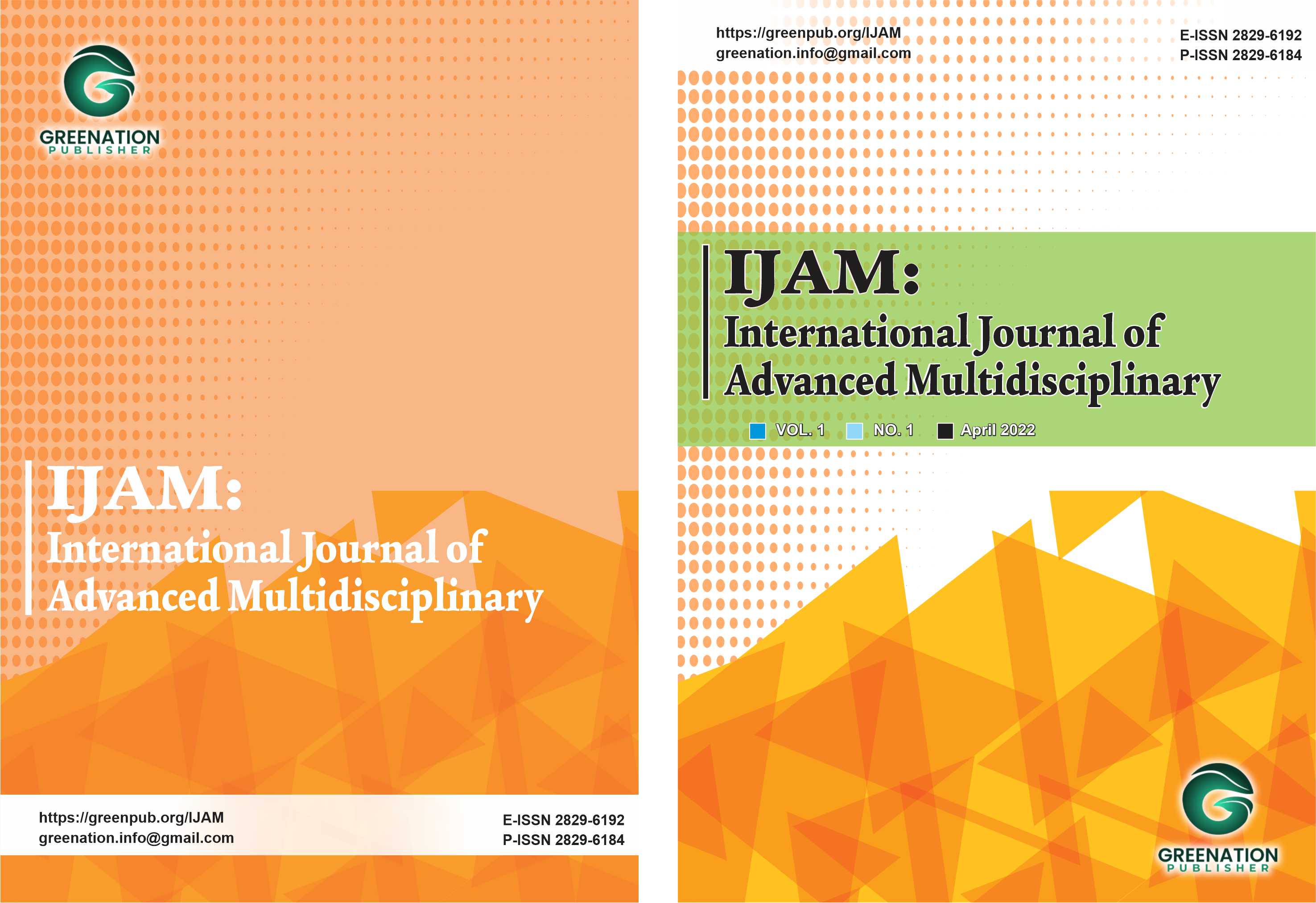Integration of Technology and Future Curriculum Design to Enhance the Efficiency and Relevance of Digital Learning
DOI:
https://doi.org/10.38035/ijam.v4i2.1125Keywords:
Educational Technology, Digital Curriculum, Artificial Intelligence, Big Data, Adaptive LearningAbstract
The purpose of this article is to analyze strategies for integrating technology into future curriculum design to enhance the efficiency, flexibility, and relevance of digital learning. This study employs a literature review method by examining ten national and international journals published within the last five years, focusing on the roles of artificial intelligence (AI), big data, and adaptive learning models such as flipped classroom and hybrid learning. The findings indicate that systematically designed technology integration can create learning experiences that are personalized, interactive, and data-driven, while also supporting the achievement of 21st-century competencies. However, challenges such as limited infrastructure, teacher readiness, and ethical issues related to data usage remain significant obstacles. Therefore, technology integration in curriculum development should be implemented inclusively, sustainably, and responsively, taking into account both local contexts and global educational dynamics.
References
Bellaj, M., Bendahmane, A., Boudra, S., & Lamarti Sefian, M. (2024). Big Data Analytics in Higher Education: A New Adaptive Learning Analytics Model Integrating Traditional Approaches. International Journal of Interactive Mobile Technologies (iJIM), 18(6), 24–39.
Chanda, T. C., Sain, Z. H., Mpolomoka, D. L., Akpan, W. M., & Davy, M. (2024). Curriculum Design for the Digital Age: Strategies for Effective Technology Integration in Higher Education. International Journal of Research, 11(7), 185–201.
Fathurrahman, M., Sarira, R. A., & Djakaria, I. (2024). Integrasi Teknologi dan Kurikulum dalam Pendidikan: Analisis Tren dan Inovasi Terkini. KAMBIK: Jurnal Pendidikan Matematika, 2(2), 111–123.
Fitriani, Y., Zakir, S., Gusli, R. A., & Lestari, K. M. (2024). Konsep Kecerdasan Buatan (Artificial Intelligence) dalam Manajemen Kurikulum SD/MI. Jurnal Publikasi Ilmu Manajemen (JUPIMAN), 3(1), 11–22.
Habsy, B. A. (2017). Seni memahami penelitian kualitatif dalam bimbingan dan konseling: studi literatur. Jurnal Konseling Andi Matappa, 1(2), 90-100.
Haidar, T. R. (2024). Pemanfaatan AI dalam Pendidikan: Meningkatkan Pembelajaran melalui Sistem Pembelajaran Adaptif. Jurnal Ilmiah Multidisiplin “Merdeka”, 2(2), 394–400.
Judijanto, L., Mata, R., & Putra, H. R. F. (2025). Transformasi Digital di Dunia Pendidikan: Integrasi Teknologi dalam Kurikulum Sekolah. Jurnal Ilmiah Edukatif, 11(1), 37-46.
Marlina, S., Saifullah, M., Apriyanto, A., Megavitry, R., Wiliyanti, V., & Jaswan, J. (2024). Peran Teknologi Big Data dalam Meningkatkan Efektivitas Manajemen Pendidikan di Perguruan Tinggi. Jurnal Review Pendidikan dan Pengajaran, 7(3), 10089–10094.
Maulidin, S. (2024). Penerapan Pembelajaran Adaptif Berbasis Kecerdasan Buatan (AI) untuk Meningkatkan Kinerja Siswa Berkebutuhan Khusus di Kelas Inklusif. TEACHER: Jurnal Inovasi Karya Ilmiah Guru, 4(3), 128–139.
Muminang, M., Adam, A., & Wahyudin, W. (2025). The Effect of Adaptive Learning System Based on Flipped Classroom on Students’ Learning Outcomes in Natural Sciences at SMP Negeri 3 Ma’rang. International Journal of Education and Literature, 4(1), 50–54.
Pangestu, A. T. (2024). Utilizing Artificial Intelligence to Design Adaptive Learning Systems Aligned with the 2024 Curriculum. Journal of Education Innovation and Curriculum Development, 2(3), 119–128.
Respati, H. T. (2024). Pemanfaatan AI dalam Pendidikan: Meningkatkan Pembelajaran melalui Sistem Pembelajaran Adaptif. Jurnal Ilmiah Multidisiplin “Merdeka”, 2(2), 394–400.
Sahrin, E. F., Sitakar, S. M., Zahara, A. S., Lestari, A., & Sinabariba, D. P. O. (2024). Problematika Penggunaan Teknologi Terhadap Proses Pembelajaran Dan Hasil Belajar Siswa Di Era Revolusi Digital 4.0 Indonesia. Jurnal Pembelajaran Bahasa dan Sastra Indonesia, (2019), 20-27.
Thelma, C. C., Sain, Z. H., Mpolomoka, D. L., Akpan, W. M., & Davy, M. (2024). Curriculum design for the digital age: Strategies for effective technology integration in higher education. International Journal of Research, 11(07), 185-201.
Schnackenberg, H. L., & Still, G. (2014). Teacher preparation programs and technology integration: Best practices for curriculum design. International Journal of Education and Practice, 2(7), 147-158.
Waddoups, G. L., Wentworth, N., & Earle, R. (2004). Principles of technology integration and curriculum development. Computers in the Schools, 21(1-2), 15-23.
Wang, Y., & Feng, L. (2024). Vocational Education in the Era of Big Data: Course Design and Optimization Strategy Based on Educational Technology. International Journal of Interactive Mobile Technologies (iJIM), 18(22), 143–158.
Downloads
Published
How to Cite
Issue
Section
License
Copyright (c) 2025 Madha Komala, Syabba Usaima Yamtaz, Teresia Antini Senda

This work is licensed under a Creative Commons Attribution 4.0 International License.
Authors who publish their manuscripts in this journal agree to the following conditions:
- The copyright on each article belongs to the author(s).
- The author acknowledges that the International Journal of Advanced Multidisciplinary (IJAM) has the right to be the first to publish with a Creative Commons Attribution 4.0 International license (Attribution 4.0 International (CC BY 4.0).
- Authors can submit articles separately, arrange for the non-exclusive distribution of manuscripts that have been published in this journal into other versions (e.g., sent to the author's institutional repository, publication into books, etc.), by acknowledging that the manuscript has been published for the first time in the International Journal of Advanced Multidisciplinary (IJAM).






















